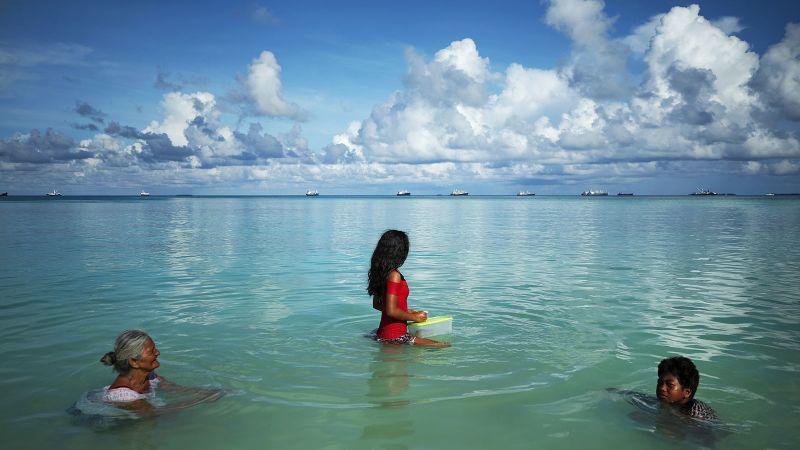
Sydney, Australia — In a bold response to the existential threat posed by climate change, more than a third of Tuvalu’s population has applied to relocate to Australia. This comes under a pioneering visa initiative aimed at providing sanctuary from the rising sea levels that threaten to engulf the island nation.
Tuvalu, located approximately halfway between Hawaii and Australia, is home to around 10,000 residents. The island’s geography, with no land rising above six meters, makes it one of the most vulnerable regions in the world to the impacts of climate change.
On June 16, Australia launched a unique visa program, opening a one-month application period. This initiative, driven by climate necessity, will allow 280 Tuvaluans to gain permanent residency in Australia, offering them the right to work and access to public healthcare and education. The selection will occur through a random ballot between July and January 2026. According to official figures, over 4,000 Tuvaluans have already applied.
“The opening of the Falepili Mobility Pathway delivers on our shared vision for mobility with dignity, by providing Tuvaluans the opportunity to live, study and work in Australia as climate impacts worsen,” Australian Foreign Minister Penny Wong stated.
Tuvalu’s Dire Climate Reality
Tuvalu’s Prime Minister, Feleti Teo, has painted a grim picture of the nation’s future. He predicts that by 2050, more than half of Tuvalu will be regularly submerged by tidal surges, and by 2100, 90% will be underwater.
The capital, Fongafale, is the largest and most populated islet in the main atoll, Funafuti. Its narrow land strip, at some points only 20 meters wide, underscores the precariousness of the situation.
Prime Minister Teo, speaking at the United Nations Oceans Conference in Nice, France, emphasized the lack of internal relocation options. “Internal relocation in Tuvalu is not an option, we are totally flat,” he stated. “There is no option to move inland or move to higher ground, because there is no higher ground.”
Australia’s Strategic Partnership
This visa scheme is part of a broader agreement signed between Australia and Tuvalu in 2023. This pact commits Australia to defend Tuvalu both militarily and against the threat of rising seas. Canberra views Tuvalu as a key player in its strategic competition with China for influence in the Pacific region.
Australia has pledged to uphold Tuvalu’s statehood and sovereignty, even if its land becomes uninhabitable. “The statehood and sovereignty of Tuvalu will continue, and the rights and duties inherent thereto will be maintained, notwithstanding the impact of climate change-related sea-level rise,” the treaty stipulates.
Digital Sovereignty and Global Recognition
In 2022, Tuvalu announced its intention to become the first nation to transition entirely online, a plan unveiled at COP27 in Sharm El-Sheikh, Egypt. The government aims to digitally recreate its land, archive its history and culture, and move all governmental functions to a digital realm. Australia acknowledges Tuvalu’s “digital sovereignty,” a move that could help preserve its national identity and governance structure even after its physical territory is lost.
Australia’s Prime Minister Anthony Albanese has expressed a commitment to a “peaceful, stable, prosperous and unified region,” emphasizing Australia’s role as a reliable partner for Pacific nations.
Contrasting International Approaches
Australia’s proactive stance contrasts sharply with the policies of the former U.S. administration under President Donald Trump, which imposed stringent restrictions on climate policies and immigration. Tuvalu is among 36 countries the Trump administration considered adding to an expanded travel ban list, according to the Associated Press. This list includes nations like Tonga and Vanuatu, Tuvalu’s Pacific neighbors, which were urged to improve traveler vetting and address the status of their nationals in the U.S. to avoid similar restrictions.
As Tuvalu faces an uncertain future, the international community’s response will be pivotal in determining the fate of its people and the preservation of its cultural heritage.







